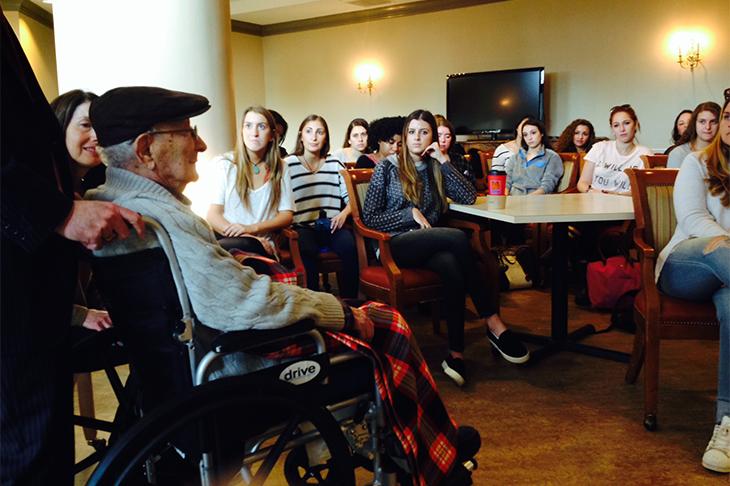‘The message is to remember’
David Goldstein teaches his students about the brave young leaders of the Warsaw Ghetto uprising, considered the largest revolt by Jews during the Holocaust.
“Don’t ever think you’re too young to change the world,” says Goldstein, rabbi emeritus of Touro Synagogue and adjunct professor of Jewish Studies at Tulane University.
“I find myself moved especially when I tell my students about the Warsaw Ghetto uprising, how these Jewish kids who are your age held off the Wehrmacht (Nazi Germany’s armed forces) a significant amount longer than the Polish army did.”
Goldstein teaches about the Warsaw Ghetto uprising in his course, The Holocaust in Film and Literature.
In his course, students learn about the Holocaust from a variety of perspectives. One, a Hollywood film called Defiance, starring Daniel Craig, tells the true story of the Bielski brothers, who saved 1,200 Jews in Poland. Another, a Nazi propaganda film, called The Eternal Jew, shows negative stereotypes being disseminated during that time.
The range of materials in Goldstein’s course includes such iconic texts as Maus I by Art Spiegelman, Night by Elie Wiesel, Survival in Auschwitz by Primo Levi and The Last of the Justby Andre Schwarz-Bart.
Goldstein rejects political theorist Hannah Arendt’s claim that the Jews went to their deaths “like sheep to the slaughter.” Instead, he uses films like Defiance and the history of the Warsaw Ghetto uprising to show Jewish resilience and resistance.
Teaching the next generation about the Holocaust from an academic perspective is important, Goldstein says. He regards the Holocaust as potentially the most cataclysmic event of the 20th century.
Goldstein asks his students, “What is the message? The message is to remember. Not to relegate it to forgetfulness. That would be the No. 1 crime for me.”
The School of Liberal Arts offers this course annually through the generous support of donors.
Mary Sparacello is a communications specialist in the Office of Development Communications.

